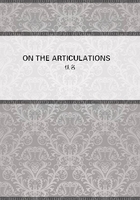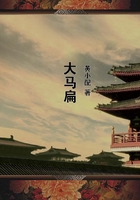The Florentines had the good taste not to crown their famous humanists till after death.Carlo Aretino and Leonardo Aretino were thus crowned;the eulogy of the first was pronounced by Matteo Palmieri, of the latter by Giannozzo Manetti, before the members of the council and the whole people, the orator standing at the head of the bier, on which the corpse lay clad in a silken robe.Carlo Aretino was further honoured by a tomb in Santa Croce, which is among the most beautiful in the whole course of the Renaissance.
Universities and Schools The influence of antiquity on culture, of which we have now to speak, presupposes that the new learning had gained possession of the universities.This was so, but by no means to the extent and with the results which might have been expected.
Few of the Italian universities show themselves in their full vigor till the thirteenth and fourteenth centuries, when the increase of wealth rendered a more systematic care for education possible.At first there were generally three sorts of professorships--one for civil law, another for canonical law, the third for medicine; in course of time professorships of rhetoric, of philosophy, and of astronomy were added, the last commonly, though not always, identical with astrology.The salaries varied greatly in different cases.Sometimes a capital sum was paid down.With the spread of culture, competition became so active that the different universities tried to entice away distinguished teachers from one another, under which circumstances Bologna is said to have sometimes devoted the half of its public income (20,000 ducats) to the university.The appointments were as a rule made only for a certain time, sometimes for only half a year, so that the teachers were forced to lead a wandering life, like actors.Appointments for life were, however, not unknown.Sometimes the promise was exacted not to teach elsewhere what had already been taught at one place.There were also voluntary, unpaid professors.
Of the chairs which have been mentioned, that of rhetoric was especially sought by the humanist; yet it depended only on his familiarity with the matter of ancient learning whether or no be could aspire to those of law, medicine, philosophy, or astronomy.The inward conditions of the science of the day were as variable as the outward conditions of the teacher.Certain jurists and physicians received by far the largest salaries of all, the former chiefly as consulting lawyers for the suits and claims of the State which employed them.In Padua a lawyer of the fifteenth century received a salary of 1,000ducats, and it was proposed to appoint a celebrated physician with a yearly payment of 2,000 ducats, and the right of private practice, the same man having previously received 700 gold florins at Pisa.When the jurist Bartolommeo Socini, professor at Pisa, accepted a Venetian appointment at Padua, and was on the point of starting on his journey, he was arrested by the Florentine government and only released on payment of bail to the amount of 18,000 gold florins.The high estimation in which these branches of science were held makes it intelligible why distinguished philologists turned their attention to law and medicine, while on the other hand specialists were more and more compelled to acquire something of a wide literary culture.We shall presently have occasion to speak of the work of the humanists in other departments of practical life.
Nevertheless, the position of the philologists, as such, even where the salary was large, and did not exclude other sources of income, was on the whole uncertain and temporary, so that one and the same teacher could be connected with a great variety of institutions.It is evident that change was desired for its own sake, and something fresh expected from each newcomer, as was natural at a time when science was in the making, and consequently depended to no small degree on the personal influence of the teacher.Nor was it always the case that a lecturer on classical authors really belonged to the university of the town where he taught.Communication was so easy, and the supply of suitable accommodation, in monasteries and elsewhere, was so abundant, that a private appointment was often practicable.In the first decades of the fifteenth century, when the University of Florence was at its greatest brilliance, when the courtiers of Eugenius IV, and perhaps even of Martin V thronged the lecture-room, when Carlo Aretino and Filelfo were competing for the largest audience, there existed, not only an almost complete university among the Augustinians of Santo Spirito, not only an association of scholars among the Camaldolesi of the Angeli, but individuals of mark, either singly or in common, arranged to provide philosophical and philological teaching for themselves and others.
Linguistic and antiquarian studies in Rome had next to no connection with the university (Sapienza), and depended almost exclusively either on the favour of individual popes and prelates, or on the appointments made in the Papal chancery.It was not till Leo X (1513) that the great reorganization of the Sapienza took place, which now had eighty-eight lecturers, among whom there were the most able men of Italy, reading and interpreting the class;cs.But this new brilliancy was of short duration.We have already spoken briefly of the Greek professorships in Italy.
To form an accurate picture of the method of scientific instruction then pursued, we must turn away our eyes as far as possible from our present academic system.Personal intercourse between the teachers and the taught, public disputations, the constant use of Latin and often of Greek, the frequent changes of lecturers and the scarcity of books, gave the studies of that time a color which we cannot represent to ourselves without effort.















